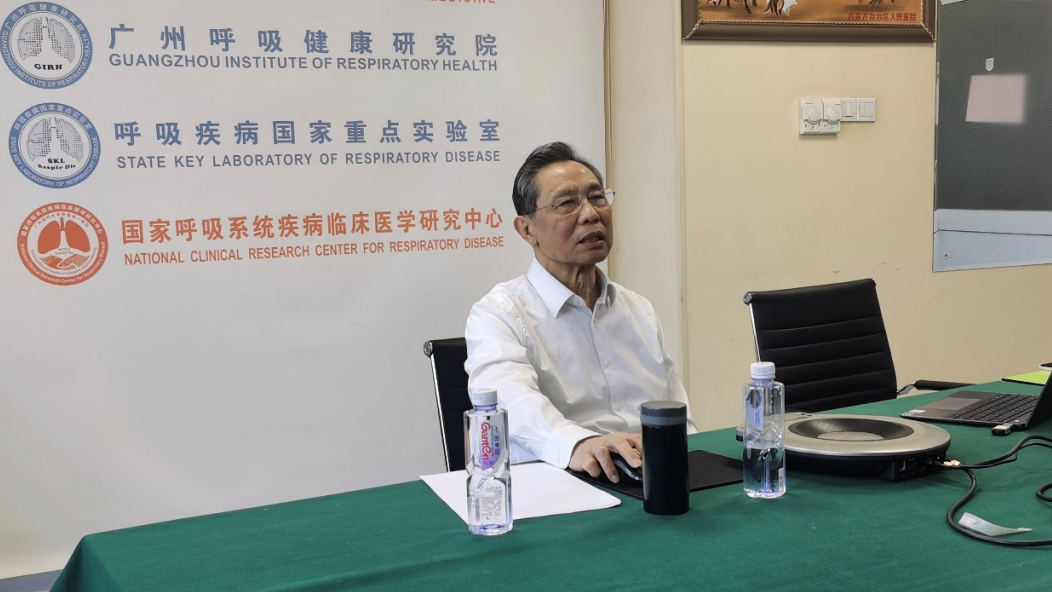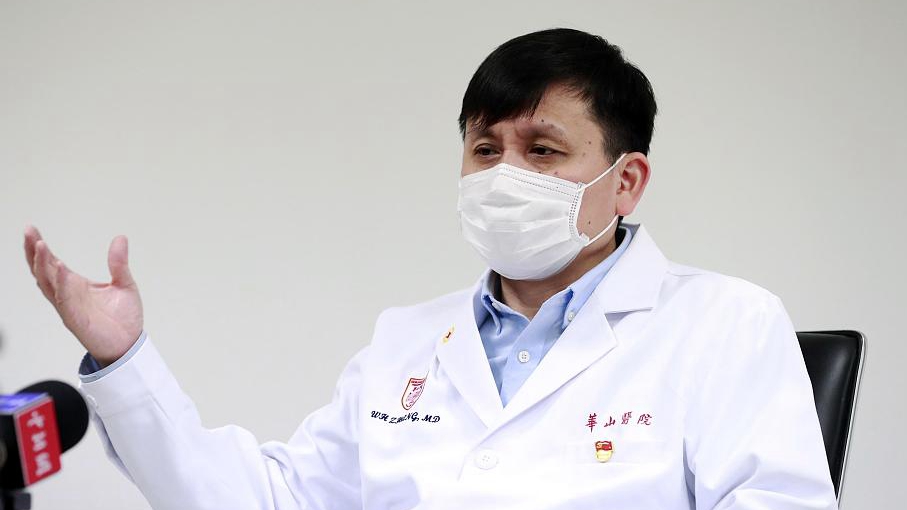
China's top respiratory specialist Zhong Nanshan speaks during a webinar organized by Nankai University, April 8, 2022. /China Media Group
China's top respiratory specialist Zhong Nanshan speaks during a webinar organized by Nankai University, April 8, 2022. /China Media Group
Despite the relatively low fatality rate of the Omicron variant of the coronavirus, its high transmissibility means that large-scale infections will still result in a lot of deaths, China's top respiratory expert Zhong Nanshan said on Friday.
"Therefore, at present, opening up entirely does not apply to China. The country should stick to its 'dynamic zero-COVID' strategy and loose restrictions gradually," he was quoted as saying at a webinar organized by Tianjin's Nankai University.
Due to the mild symptoms and relatively low mortality rate of Omicron, some countries have chosen to live with the virus, Zhong said, adding it's not an option for China, based on the evaluation of the latest COVID-19 outbreaks in Hong Kong and Shanghai.
Hong Kong reported over 1.1 million COVID-19 cases and more than 8,000 deaths in its latest Omicron wave, with a mortality rate of 0.7 percent, which is way higher than the death rate of common flu (0.006 percent to 0.09 percent), Wang Guqiang, head of the Infectious Disease Department at No. 1 Hospital of Peking University, said at press briefing on Wednesday.
Zhong pointed out the key issue of combating COVID-19 is to minimize the virus transmission and the fatality rate.
He also recommended "sequential vaccinations" for people to boost immunization against the virus, which means using a different kind of vaccine as a booster shot.

File photo of Zhang Wenhong, a Shanghai-based infectious disease specialist. /CFP
File photo of Zhang Wenhong, a Shanghai-based infectious disease specialist. /CFP
Zhang Wenhong: protecting the most vulnerable groups
Zhang Wenhong, an infectious disease specialist in Shanghai's COVID-19 treatment team, said their focus during the city's latest Omicron outbreak is to protect the vulnerable groups, such as the unvaccinated elderly and those with underlying diseases.
An important indicator for evaluating whether a country does a good job in epidemic prevention and control is whether it protects the vulnerable groups, he told local media house, The Paper.
The "dynamic zero-COVID" policy and the vaccination drive are to strengthen protection of the vulnerable people, he added.
The vaccine barrier established in the city has shown obvious effects, which is why there has been very low rate of severe cases during the recent wave, he said, adding that vaccinated young people barely develop severe symptoms.
However, the vulnerable groups, especially those with underlying diseases and the unvaccinated senior people, still face quite high risks, he noted.
"As I have stressed before, Omicron is not enhanced flu. It will bite, mainly the unvaccinated elderly," he said.
Shanghai's task is to contain the spread of the current wave and achieve dynamic clearance of the virus at community level as soon as possible, so as to allow life and business to get back to normal quickly, he said.
He added, "We will certainly continue to explore scientific ways to keep a low infection and mortality rate in the fight against the epidemic."

